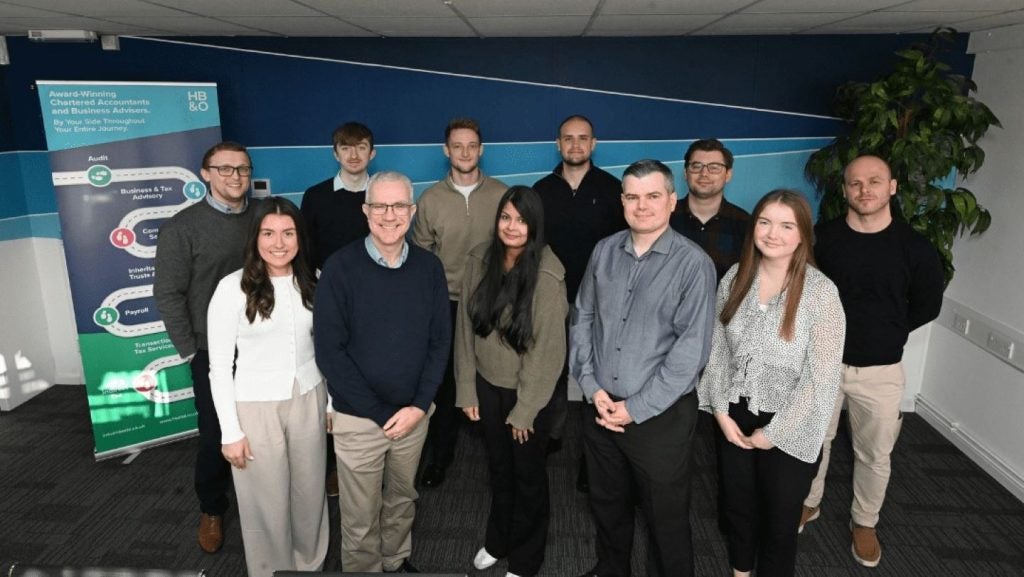
War on Talent Challenges the Accounting Industry
What does 2023 hold for the accounting sector? Zoya Malik, Editor-in Chief, Financial Services Practice, GlobalData asked the accounting industry Global C-Suite to highlight views and issues that are important to their organisations and how they’re planning to meet those challenges.
Post-pandemic and with the global economy on such unsure footing, leading to uncertainty in terms of billing, there appear to be significant industry-wide initiatives encouraging collaboration, manifesting as greater consolidation both within firms and between industry players.

Access deeper industry intelligence
Experience unmatched clarity with a single platform that combines unique data, AI, and human expertise.
Churn across the accountancy sector is a significant issue after the disruption caused by COVID-19. As Francesca Lagerberg, CEO at Baker Tilly, puts it “In many markets there are good opportunities for growth. At Baker Tilly International, we feel we are in a strong position to continue to attract like-minded firms to our network who are interested in joining a group of firms where growth is key, but the personal local touch is still important, collaboration is heavily encouraged, and innovation rewarded.”
Many of the challenges faced by Baker Tilly are common to the international accountancy profession. Dr. Christian Gorny of ETL Global expects further consolidation of smaller firms into bigger groups or networks. He says, “This trend has been strongly influenced by rising pressure on smaller players in terms of a need for professional specialisation, technical skills, a lack of talent in the market and the recent dynamics of inflation. Joining a bigger group or network helps smaller firms to solve those issues through synergies and existing infrastructure with regard to both specialist technical or industry know-how, as well as shared services in the context of HR, IT, communications, financing etc.”
Certainly, “The Great Resignation” is adding pressure to the accounting profession, which has long been facing major issues with recruiting and retention. As the new CEO at BDO, Pat Kramer, explains, “In 2023 talent will become one of our top priorities. Our leadership focus will be on ensuring we have a clear employer value proposition, on providing the right learning culture, offering the necessary flexibility, and on leading with purpose.”
SMS Latinoamérica CEO Pablo San Martin is optimistic though and has a more dramatic take on the role of accountants, describing them as “saviours of the world.” He expounds that, “The world needs a change and you cannot change something that is not measured. We are experts in measuring under close public scrutiny and therefore, as a profession, are in a position to attract new talent.”

US Tariffs are shifting - will you react or anticipate?
Don’t let policy changes catch you off guard. Stay proactive with real-time data and expert analysis.
By GlobalDataAttracting the right talent is one thing but retaining it is another. PrimeGlobal’s Steve Heathcote has a potential solution and he explains “We are promoting a new initiative to help retain and attract staff where professionals combine work with vacation, a ‘workation’. Professionals work from PrimeGlobal member firms’ offices anywhere globally, make connections with others, meet their work commitments but also benefit from vacation time.”
Tim Morris of BKR International is also optimistic, stating that “The challenges of consolidation, staffing and increased regulation will not go away, so an association like BKR International needs to develop to ensure it can help service its members to deal with these issues. The recruitment crisis will continue for all in our industry. I believe this is an exciting, career-defining world to be part of but the industry, as a whole, needs to share these positive statements with potential recruits to ensure we continue to attract the best minds into accountancy.”
Andrew Leck of MSI Global adds “When speaking to MSI members, the emphasis has moved away from talking about the people challenges they face and has focused more on sharing the solutions they have adopted. There are numerous examples including firms moving to four-day weeks, hybrid working, new reward packages and significant changes in how firms use their office space.”
Apart from perennial issues like government intervention and the need to meet increased regulatory supervision, there are new threats from non-traditional tech-based competitors. In view of that, Stephen Hamlet of Russell Bedford International offers a hint of where the industry can look to for growth.
He explains, “I want to see more work being generated around the network and this can be helped by being back to physical meetings where people can meet together, build relationships and look for business opportunities; in addition to enhancing our new centres of excellence, with one particularly dedicated to business development, we will be working with the regional boards ensuring there is ongoing membership review and to encourage engagement and interaction within the specialist groups. I also look forward to further developments within our recently established Social Impact Committee, to focus on sustainability and other contemporary issues.”
This view is reflected in Pat Kramer’s comments when he says that “BDO will focus on a small number of truly global strategies, including sustainability and advisory, as those are indispensable when supporting our clients in their own transformation journeys. The role of the accountant will continue to change, as they will need to be increasingly tech savvy, using rapidly changing technology such as AI and RPA to generate real-time data analytics and ROI-driven reports.”
This theme of providing niche services to combat the encroachment by tech companies is becoming a clear ambition for many networks and associations. Anton Collella of Moore Global adds, “We are building on our bespoke ESG service and lead the market in training and development. Our investment in technology and unwavering focus on adding value to our firms means we have a lot to look forward to in 2023. I think consolidation among firms will continue as we watch the increased role of Private Equity in our industry with interest.”
In a similar vein, Tan Kuang Hui, Chief Executive and Managing Partner at Crowe Singapore states, “In the next 5 to 10 years, there will be heightened demand for ESG assurance and advisory services. As the world accelerates the transition towards a green economy, regulators and investors are looking at more stringent ESG disclosures to reduce greenwashing. At present, the problem lies with the differing disclosure frameworks. It will be a game-changer if one global ESG disclosure standard can really take shape.”
Daxin International’s COO Hong Yue talks about further improvement to the network’s transnational audit and service capabilities as he explains, “We will add five to ten global members and publish updated ethical guidelines according to the requirements of IFRS.” Andrew Leck adds “The ESG focus is continuing to develop, and the SEC Scope 3 disclosure rules are accelerating the focus in the US and increasing the discussions globally among our membership. Firms see this as an opportunity to better support their existing clients and attract new clients.”
This renewed focus on advisory services especially in terms of non-audit work covering, for example ESG, combined with continued adaption of AI or RPA technologies is patently important as tech companies try to muscle into the industry but, perhaps, the biggest factor is the human element. Networks and associations seem to be continually working towards attracting specialised talent, not just for internal roles but also as customer-facing teams; providing a level of comfort that technology may not.
Francesca Lagerberg highlights an additional element when she says, “At BTI, we believe in the benefits of a multi-disciplinary firm. Our clients have made clear their preference for a single services provider with all the benefits this brings in terms of the cross pollination and breadth of expertise. We believe the current mooted changes in larger organisations could mean great opportunities for an ambitious network like Baker Tilly International and our firms. We do not have the same conflicts as a Big 4, but we do have the combination of global reach and local knowledge.
The biggest challenge though that we all face is an increasingly tough war for talent, and we are all keen to reflect a more diverse and inclusive (D&I) face to the world, especially among our leadership. The fact that I am only the second female CEO of a top 10 Accounting firm or network in 2022 is not a massive reason to celebrate, as it feels like a long time coming. We have had parity of gender with those coming into our profession for several decades and it’s about encouraging that equality all the way through our organisations. Our teams need to look like our clients, because that is the right thing, and it also makes good business sense.”
As Steve Heathcote says “In a challenging economic environment, it is important for firms to have a speedboat mentality so they can change direction quickly to meet client needs rather than that of a container ship that moves very slowly.”
Viewed through the twin lenses of collaboration and consolidation, the accountancy industry has stepped up post-pandemic. However, there are a number of challenges; working arrangements and adapting to new flexibilities, attracting and retaining talented people (with an eye on gender equality) to provide the services needed from expanding client demands and to ensure quality is managed effectively.
The last point is particularly relevant with the industry seeking to apply international quality management standards, meaning firms will no longer just be looking at audit quality control but will need to ensure quality is consistent and maintained across the whole practice and all service lines.






